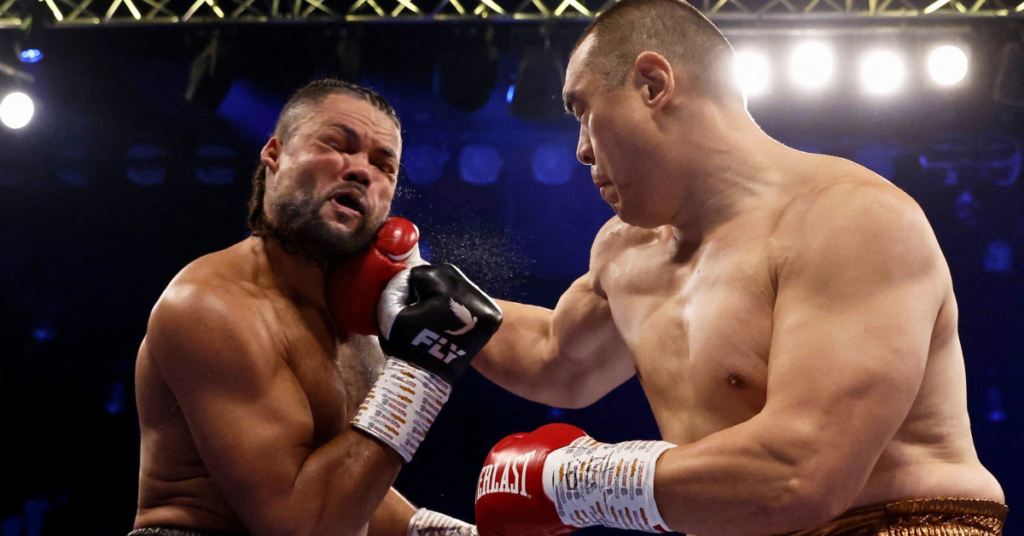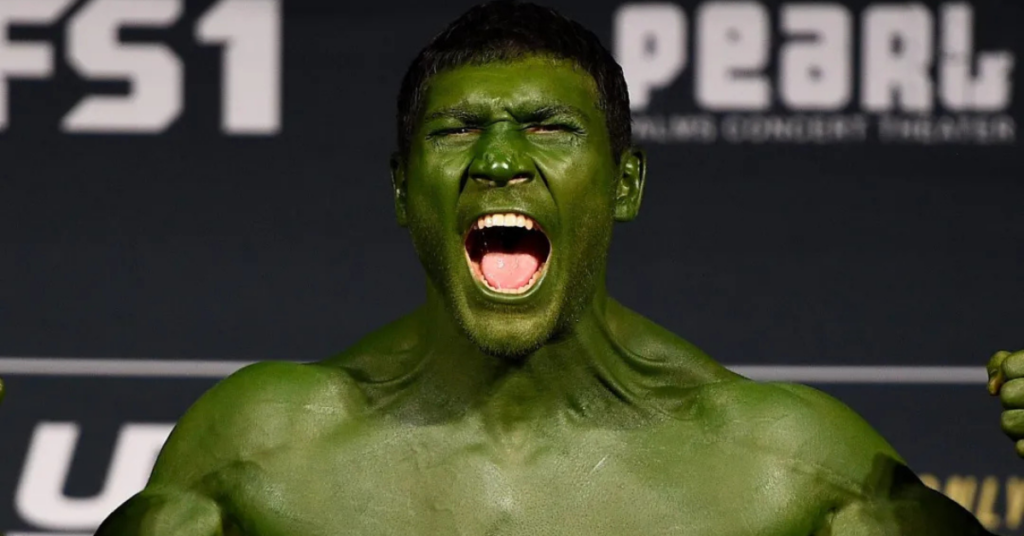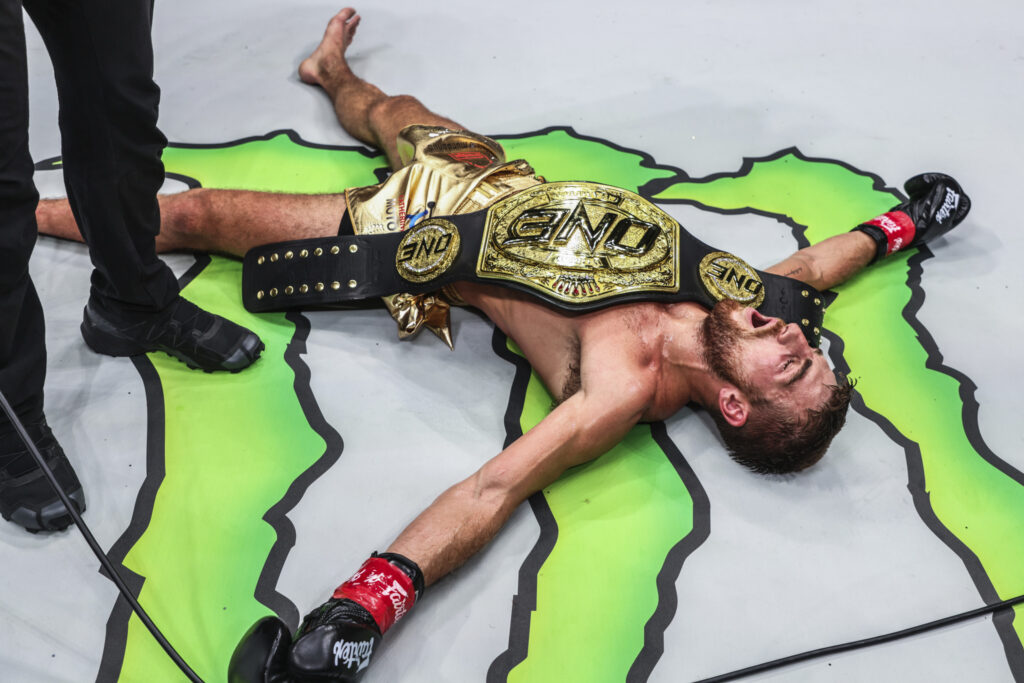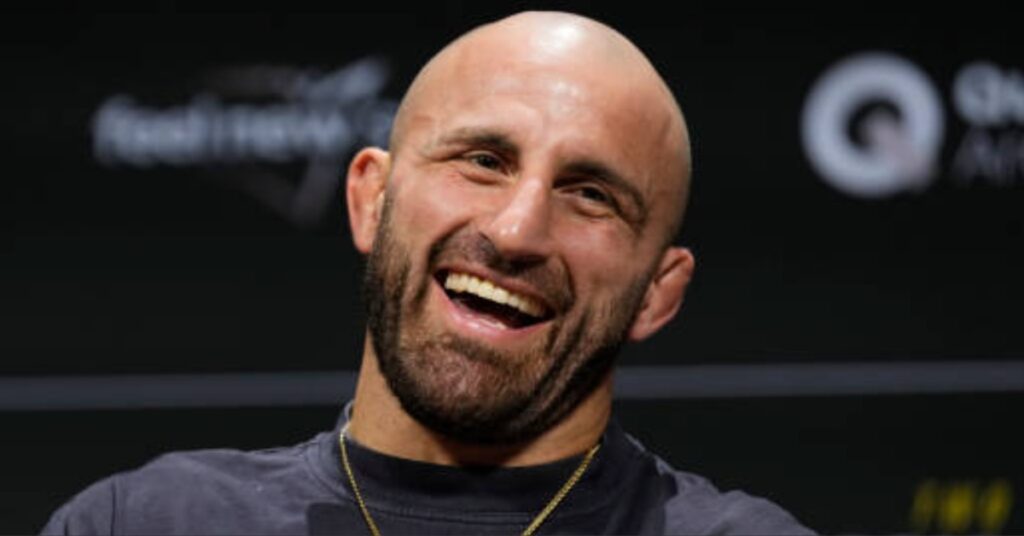Five Reasons The UFC Is A Ticking Time Bomb
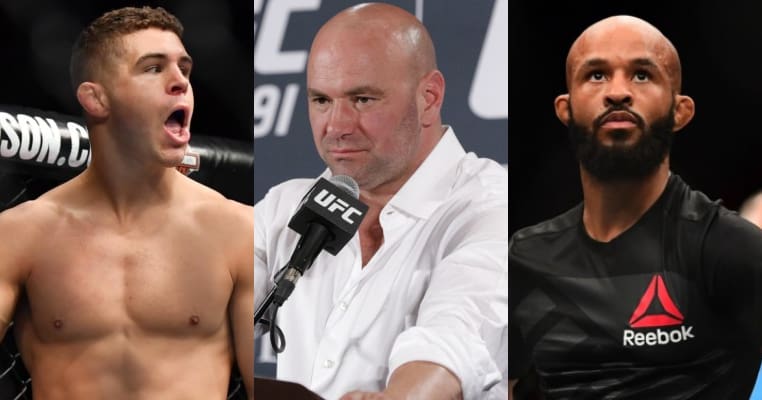
With the UFC’s rough start to 2017 now almost in the middle of June, the topic of just how bad the year is for the UFC is not only an oft-discussed talking point, but it has become a brooding specter of uncertainty at this point, one that could ultimately spell doom for the outfit that has led MMA for so long.
The reasons why this unfortunate circumstance is becoming clear are many, and indeed they’ve been brewing for several years in more than one instance. The fact that the company is under new ownership after Hollywood talent giant WME-IMG purchased the UFC for a record-breaking $4.2 billion last July is obviously a huge motivating factor why the UFC is failing, but there are many others that only speed up that process.
Several MMA pundits have predicted grey skies for at least the immediate future of the UFC, and it’s hard to predict a quick turnaround for the promotion in the final seven months of the year, even if at least a few big fights are on the horizon. What’s more, there are even a few more ominous signs that suggest the new owners are possibly running the world’s biggest MMA company into the ground for good.
Let’s take a look at the biggest reasons why the UFC is spiraling downward rapidly.
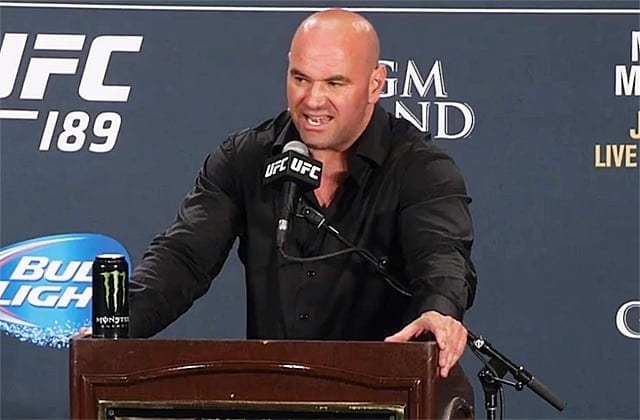
5. Dana White’s Strong-Arm Tactics:
There’s no denying that White, alongside with his childhood friends and Las Vegas casino moguls Frank and Lorenzo Fertitta, saved MMA and the UFC from dying off when they purchased the company back in the late 20th century. They then parlayed that gamble into one of the most lucrative rags-to-riches (figuratively) stories in combat sports, turning MMA into a worldwide phenomenon while making the UFC one of sports’ most coveted properties by the time it reached its height in 2016.
A lot of that financial success was built on paying fighters the bare minimum, however, and that fact was effectively kept under wraps when the Fertittas were in charge, but absolutely exploded on to the forefront of most MMA discussion when WME-IMG bought it for a seemingly ludicrous $4.2 billion last year.
But White, who was kept on as president and the company’s public face, has recently seen this strong-arm strategy backfire in his face and in no small way. His messy feud with dominant flyweight champion Demetrious Johnson that recently spilled over into the media is the most glaring – and poignant – example.
Fighters aren’t going to take whatever scraps the UFC offers them now that they know how much they’re really worth, and while they’ve failed to effectively organize in any lasting form to this point, White’s bullying clearly isn’t going to scare today’s fighters into signing whatever is put in front of them and their managers.
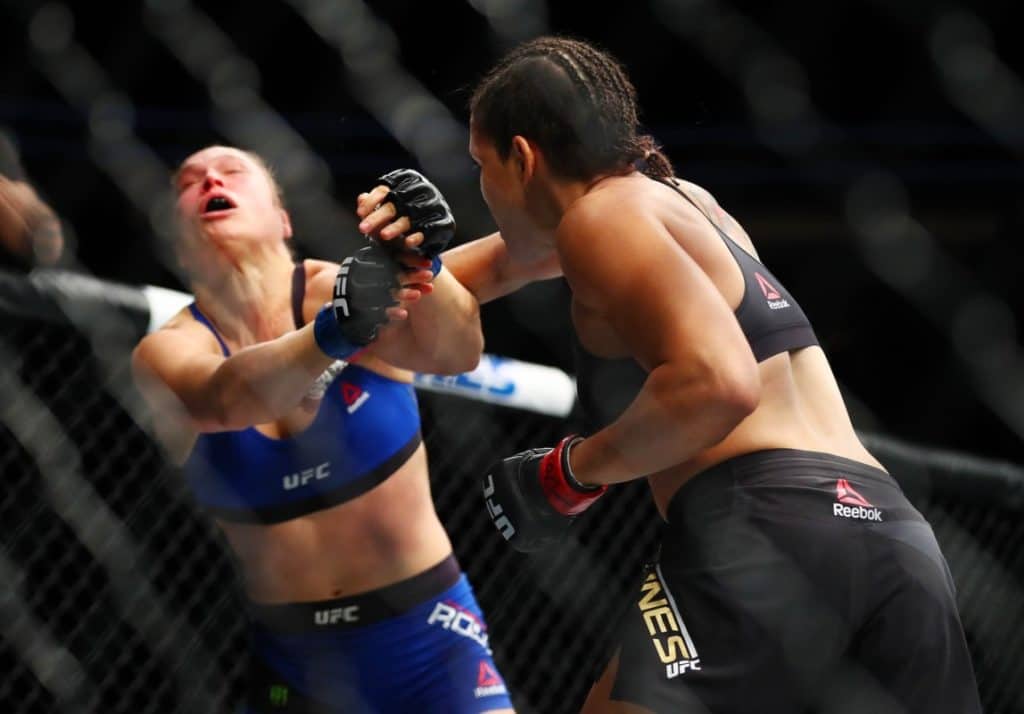
4. Lack of Vision:
Perhaps the most obvious mistake the new UFC owners made is their blatant lack of vision for this year. Yes, the UFC was riding high on a wave of momentum in 2016 with three cards all headlined by the stratospheric McGregor, and former women’s bantamweight champ Ronda Rousey’s return was slated for the end of the year as well.
While both McGregor vs. Diaz fights drew huge numbers at the box office just like Rousey’s devastating return vs. Amanda Nunes did at the end of the year, one has to wonder if they didn’t see that the sport was in for far leaner times without McGregor and Rousey keeping up the unsustainable pace they had. Things simply fell into place perfectly for the UFC in 2015 and to a larger extent 2016 with the booming of McGregor and Rousey, and history would tell you that cant be maintained for a long time.
Paying back a massive loan like the one WME-IMG took out would require that it was at least in some capacity, and as we see in 2017, without these two name-brand stars after they stacked the deck to end 2016 in a star-driven sport like MMA, the cupboard is now bare despite lesser-known fighters on the roster performing well as of late.
Not enough eyeballs are watching, and the UFC’s new owners should have seen at least somewhat of a drought like this on the horizon when they signed on the dotted line.
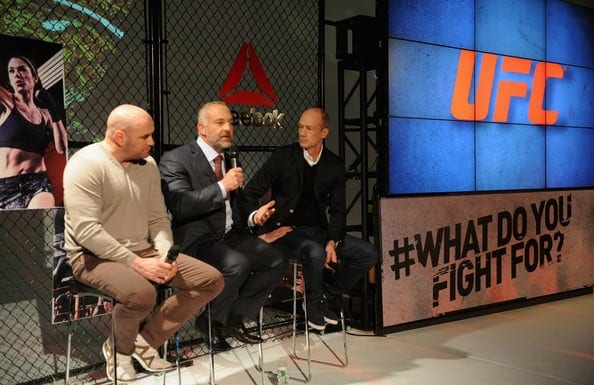
3. Sponsorship Woes:
Another oft-discussed downside of the UFC’s current, more corporate era is the criticized uniform sponsorship deal with Reebok. Fighters are now required to wear Reebok fight kits leading up to and during their fights, negating any of the once-lucrative sponsorship money that they once garnered on their pre-fight banners and shorts. The per-fight pay they now receive from Reebok pales in comparison, and has even lead some name fighters to jump ship to rival Bellator.
It’s also served to greatly compound the issue of low fighter pay, with some fighters saying they can’t even afford to make it through a training camp to fight in the UFC, a sobering reminder of how tough it actually is to make it as a MMA fighter in the almost oppressive environment the UFC created and is trying to sustain, much to the disgust of fighters and fans everywhere. Will it contribute to the UFC’s overall ruin? We’ll see.
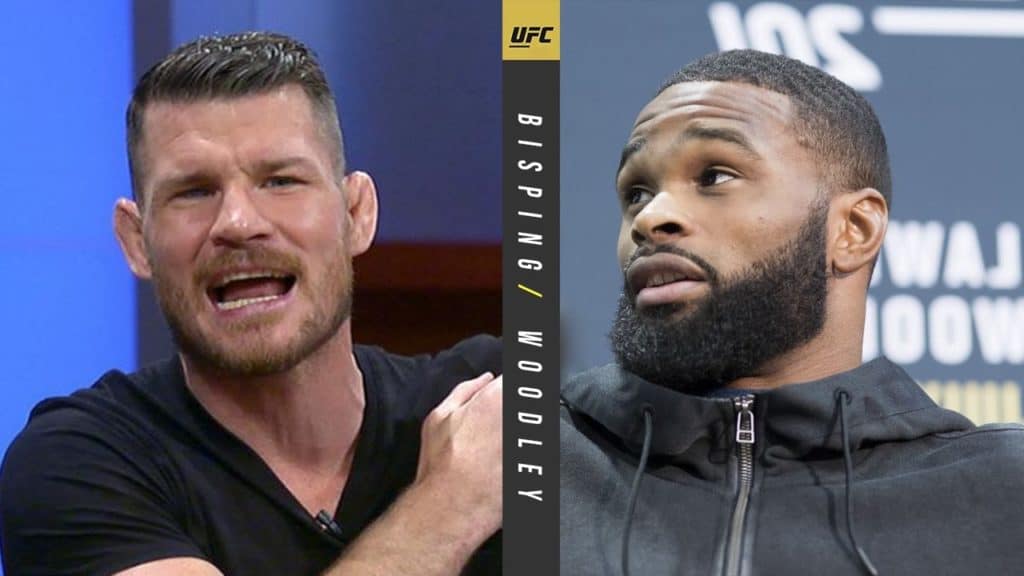
2. Letting Athletes Call The Shots In The “Money Fight” Era:
A disturbing trend in today’s UFC is the rise of so-called ‘money fights’ that involve a champion fighting someone from another weight class. They could involve two champions, but that’s yet to play out in the cage aside from last year’s incredibly successful UFC 205 from Madison Square Garden.
Much of this attitude has been created by lightweight champion Conor McGregor, who wants the biggest and most over-the-top fight possible rather than defending his belt, and in turn that’s lead to a nonstop stream of fighters making their own sets of demands without even close to the amount of pay-per-view success he had.
Fighters like Michael Bisping and Tyron Woodley have publicly eschewed fights against the clear No. 1 contenders in their respective divisions, in this case Yoel Romero and Demian Maia, in an attempt to call their shot at a much more high-profile payday. Bisping was supposed to fight Georges St-Pierre, and he still might, while Woodley has discussed a fight with Nick Diaz, GSP, or even Bisping himself.
It’s also lead to thee creation of unwarranted interim titles to attach a title fight to an otherwise struggling PPV card, something we saw be wildly unsuccessful when Germaine de Randamie met Holly Holm at UFC 208, with “The Iron Lady” winning and falling off the face of the Earth afterwards. Another interim champion will be crowned when Romero meets surging middleweight Robert Whittaker in the co-main event of July ‘s UFC 213.
The entire idea of these ‘money fights’ is to make big money, but they just haven’t been doing that, and it’s beginning to look like the new owners will sell off their future to create a convoluted title belt to save events that may not have sold in the first place.
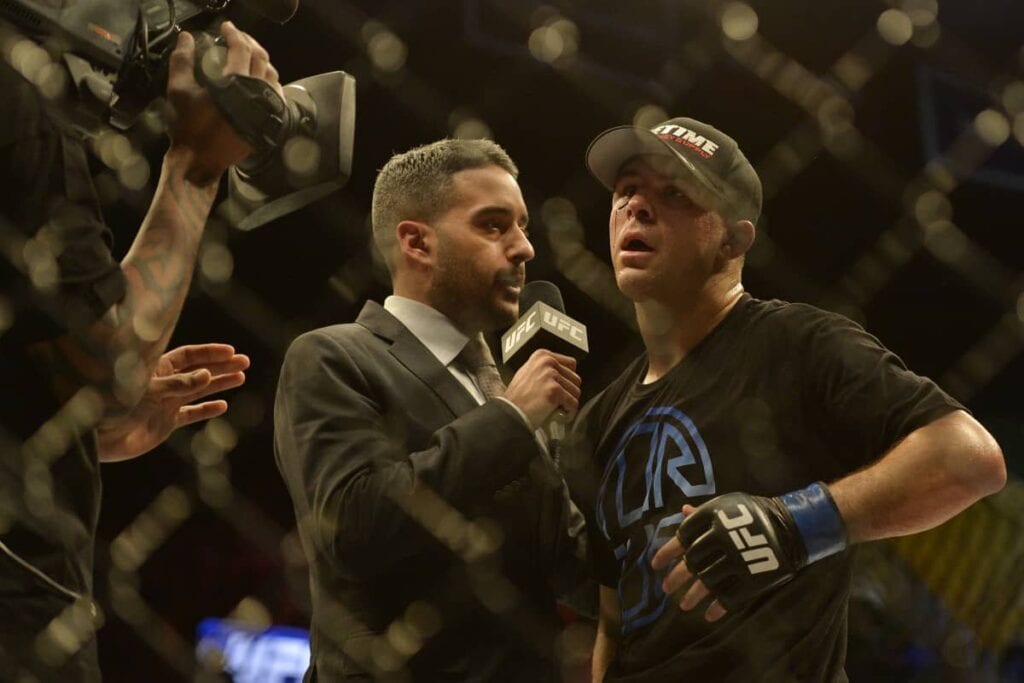
1. Fighter Pay:
At the core of the discussion why the UFC is headed down a tough path sits the oft-discussed elephant in the room that is fighter pay. The UC’s roster, which is obviously the entire core and lifeblood of what they do, is growing increasingly more discontented and more vocal, as a result, about their shockingly low pay and lack of benefits at independent contractors.
Many fighters can be heard voicing their concerns, with Al Iaquinta, TJ Dillashaw, Mark Hunt, Gegard Mousasi, and countless others calling out for fairer wages. But attempts to unionize have all fallen apart thus far, perhaps in part to the overall selfish nature of the fight game as compared to other team sports where the athletes collectively bargain with their teams as an association.
The entire scene is a huge mess, with the UFC and its owners looking as bad as possible as an evil corporation who has majorly slashed the existing staff while cutting costs and overhead as most new business owners do as their fighter base grows more aware of just what the UFC is actually worth. Add that to the recent UFC Fighter Retreat that made it look like the owners were painfully unaware or just simply didn’t care about the fighters’ current plights, and you have a climate that is rife for change, even if we don’t know how it will eventually come to be.
Bellator MMA is certainly capitalizing on that rift between UFC athletes and WME-IMG, and that’s only going to become more apparent if the UFC continues to try to strong0arm fighters and pay them a fraction of their true worth for literally putting their health on the line every time out to the cage.
So much so, that it could even force the promotion out of the sport’s clear top spot in the near future. What are your thoughts on the current state of the UFC? Can it and will it be saved?



